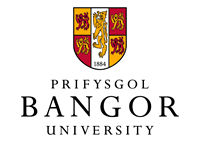The health technology appraisal process requires evidence of both clinical- and cost-effectiveness. Randomised controlled trials (RCTs) are powered to assess the primary clinical outcome and are considered a “gold-standard” method for assessing treatment effectiveness. They are rarely powered for quality of life and/or cost outcomes which renders economic analyses alongside trials often unable to answer the policy question if adopting a frequentist approach1; the issue is compounded by incomplete and/or non-generalisable data. To date, most NIHR-HTA funded trial-based economic evaluations estimate mean total costs and quality-adjusted life years (QALYs) on a per arm basis for the trial population, over the trial duration. Increasingly, health economists are using approaches such as event-based methods for trial-based analysis in order to improve precision and generalisability2, and thus, the informative potential of their evaluations. An event-based approach links costs and QALYs with clinical outcomes by using key clinical events in the trial as covariates in regression models2. These models are then used together with event histories in the trial to calculate trajectories of costs and utilities of individual participants and the differences between trial arms. The approach is not a panacea, the selection of the events to include is often unclear and the patient journey through a trial is unlikely fully reflected through these events. Rather than suggest a one-size fits all approach, this studentship aims to identify areas where an event-based analysis may be of specific benefit, and to produce recommendations for good practice.
This studentship will begin by reviewing the literature to see how event-based approaches have been used to assess cost-effectiveness alongside randomised trials to date. A series of simulations will be used to illustrate different scenarios and the pros, cons and practical challenges of the event-based approach. A case study will be sought to illustrate the impact of different approaches on estimates of cost-effectiveness. Results will be communicated to key stakeholders via a knowledge exchange workshop. The aim of the workshop will be to share the results from the study and to promote discussion around the appropriateness of alternative approaches to health economic analysis alongside randomised controlled clinical trials in the future. The studentship will aim to generate recommendations as to future good practice, for when, and how to conduct event-based economic analyses alongside randomised controlled trials.
This studentship will be supervised by a team with expertise in economic analysis alongside RCTs and economic modelling, including event–based and traditional analyses. The lead supervisor will be Dr Catrin Plumpton (Bangor University), with, co-supervision provided by Prof. Dyfrig Hughes (Bangor University) and Prof. Borislava Miyhaylova (Queen Mary University of London).
There will be potential for a placement with co-supervisor Prof. Mihaylova at Queen Mary University of London. The knowledge exchange will provide an opportunity for stakeholder engagement, including, but not limited to policy makers, triallists and health economists.
HOW TO APPLY
You are applying for a PhD studentship from the MRC TMRP DTP. A list of potential projects and the application form is available online at:
http://www.methodologyhubs.mrc.ac.uk/about/tmrp-doctoral-training-partnership/
Please complete the form fully. Incomplete forms will not be considered. CVs will not be accepted for this scheme.
Please apply giving details for your first choice project. You can provide details of up to two other TMRP DTP projects you may be interested in at section B of the application form.
Before making an application, applicants should contact the project supervisor to find out more about the project and to discuss their interests in the research before 09 January 2023.
The deadline for applications is 4pm (GMT) 16 January 2023. Late applications will not be considered.
Completed application forms must be returned to: [Email Address Removed]
Informal enquiries may be made to Dr Catrin Plumpton - [Email Address Removed]

 Continue with Facebook
Continue with Facebook



